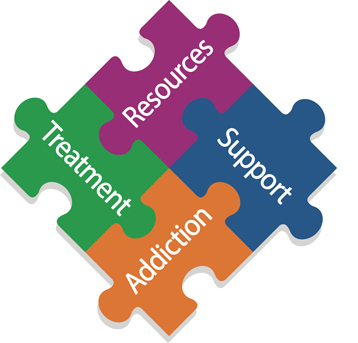Comprehensive and structured opioid addiction treatment options can enhance the detox process.
Comprehending Dependency Therapy: Discovering Effective Programs for Alcoholism Recuperation and Mental Health Assistance
Initiating the journey toward recuperation from alcohol dependency includes a detailed strategy that resolves both the physical and mental elements of reliance. Concurrently, psychiatric therapy and medication-assisted therapies are tailored to alleviate the underlying mental health problems, frequently intertwined with dependency.

The Role of Clinical Detoxing in Handling Alcohol Withdrawal
Clinical detoxing plays a critical duty in the management of alcohol withdrawal, functioning as the preliminary action in the trip in the direction of healing. This procedure thoroughly keeps track of and treats the acute physical symptoms of withdrawal that happen when a specific stops consuming alcohol. The primary goal is to maintain the person literally and reduce possible health and wellness dangers associated with withdrawal, such as seizures and ecstasy tremens.
Clinical professionals usually carry out medicines to alleviate symptoms, handle discomfort, and protect against difficulties. The controlled setting guarantees safety, addresses dietary deficiencies, and prepares individuals for the following phases of dependency treatment. Successful detoxification is essential, as it develops the foundation for more therapeutic treatments, concentrating on lasting recuperation and regression prevention.
Psychotherapy Methods for Double Medical Diagnosis Therapy
Following the stablizing given by clinical cleansing, psychiatric therapy comes to be an important part in dealing with individuals with a double diagnosis. Cognitive Behavior Therapy (CBT) is frequently employed to resolve maladaptive thinking patterns, aiding patients comprehend and manage their actions and emotions efficiently. Dialectical Actions Treatment (DBT), which emphasizes the advancement of coping abilities to handle stress and anxiety, regulate emotions, and improve partnerships, is especially beneficial. Integrative approaches, combining components from numerous restorative modalities, tailor therapy to specific requirements, enhancing the effectiveness of twin medical diagnosis monitoring. Via these psychotherapeutic approaches, people gain insights right into their addicting behaviors and mental health concerns, cultivating an all natural recovery process and substantially enhancing their high quality of life.

The Significance of Medication-Assisted Treatment (FLOOR COVERING)
While psychiatric therapy takes on the emotional elements of addiction, Medication-Assisted Treatment (FLOOR COVERING) plays an equally important duty in attending to the physical challenges. Floor covering makes use of FDA-approved medicines, such as naltrexone, buprenorphine, and methadone, to support mind chemistry, block the euphoric results of alcohol, and ease desires, paving the means for a lasting recovery. These medicines, when combined with behavioral therapies, enhance therapy effectiveness, reduce the risk of regression, and assist keep long-term soberness. By sustaining the biological basis of addiction, MAT addresses the extensive health and wellness requirements of individuals, helping with boosted outcomes in recovery programs. This incorporated approach makes sure a more robust structure for recovery, emphasizing the necessity of resolving both psychological and physical wellness components in addiction treatment.
Incorporating All Natural Therapies Into Alcohol Addiction Healing
Although Medication-Assisted Therapy (FLOOR COVERING) is vital, integrating holistic treatments can substantially boost the recovery procedure for those battling alcoholism. Alternative therapies encompass an array of non-medical healing methods that concentrate on healing the mind, body, and spirit. These might include yoga exercise, meditation, acupuncture, and art treatment. Each of these practices intends to boost psychological health and wellness, minimize stress free drug treatment programs and anxiety, and improve total well-being, thereby sustaining the emotional and emotional elements of recovery. By including such therapies, therapy programs can offer a much more thorough technique that not just resolves the physical symptoms of dependency however additionally promotes inner tranquility, self-awareness, and psychological resilience. This integration helps people develop healthier coping devices and a more powerful structure for long-lasting soberness.
Navigating Support Solutions and Neighborhood Resources for Sustained Recovery
After attending to the person's all natural requirements in alcoholism view publisher site recuperation, interest should also be offered to external variables that add to sustained soberness. Support group and area resources play crucial functions in this phase. Efficient healing programs emphasize the significance of developing strong networks, which can consist of assistance groups like Twelve step programs, family participation, and healing training. Neighborhood sources such as sober living arrangements and neighborhood psychological health and wellness services give functional assistance and a safety and security internet during vulnerable times. Involving with these resources urges responsibility, minimizes feelings of isolation, and improves resilience against relapse. Sustained recovery is check over here hence seen not just as an individual's journey yet as a community-supported process, promoting a setting where consistent recuperation is nurtured and commemorated.
Final Thought
In verdict, reliable alcohol dependency recuperation programs encompass a multifaceted method that includes clinical detoxing, psychotherapy, and medication-assisted therapy. Incorporating alternative therapies and leveraging support group are essential for resolving both physical and psychological wellness obstacles. Such extensive care not just helps handle withdrawal signs but also supports long-lasting sobriety and psychological well-being, thus improving a person's ability to lead a much healthier and more fulfilling life post-recovery.